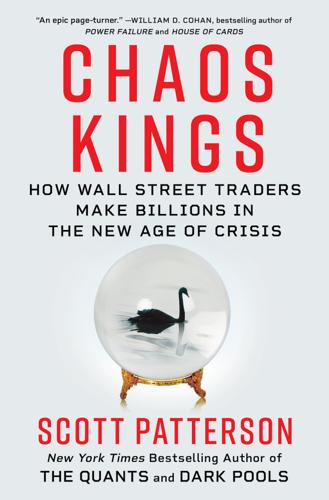
Chaos Kings: How Wall Street Traders Make Billions in the New Age of Crisis
by
Scott Patterson
Published 5 Jun 2023
So the question is this: how can we even think about designing for a future that we can’t imagine?” Taleb’s response drew directly on the work he’d done with Rupert Read as well as lessons from Antifragile. “If I am hit with a big stone I will be harmed a lot more than if I were pelted serially with pebbles of the same weight,” he wrote. The big stone was Taleb’s ruin problem. “Now that we have this principle, let us apply it to life on earth,” he wrote. “This is the basis of the non-naïve Precautionary Principle that the philosopher Rupert Read and I are in the process of elaborating, with precise policy implications on the part of states and individuals.
…
As the world entered the third decade of the Third Millennium, it was as if many homeowners, uncertain about the prospect of a fire or flood, had decided against buying insurance at all. Even worse, they didn’t have other homes to move into. In other words, it was a ruin problem. It was just such problems that prompted Taleb, Bar-Yam, Norman, and another collaborator, the English philosopher and climate activist Rupert Read, in 2014, to write “The Precautionary Principle,” a preview of the January 2020 note that recommended dramatic, immediate action to stop the spread of Covid-19 despite overwhelming uncertainty about its properties. The precautionary principle itself is designed to guide actions and policies in the realms of uncertainty and risk “in cases where the absence of evidence and the incompleteness of scientific knowledge carries profound implications and in the presence of risks of ‘Black Swans,’ unforeseen and unforeseeable events of extreme consequence,” Taleb and his coauthors wrote in the 2014 paper.
…
Indeed, with the worsening effects of global warming, geopolitical instability, the crisis of democracy, the rapid advances in AI, the lingering pandemic and its endless Covid variants, and more, his forecast—made more than two decades ago—seemed eerily accurate. CHAPTER 16 THIS CIVILIZATION IS FINISHED Rupert Read—dapper, trim, sandy-haired Green Party politician, Oxford-educated philosopher, spokesman for the activist environmental group Extinction Rebellion—breathed in the crisp Alpine air as he stepped off a train in Davos Platz. Here he was in the very belly of the beast: Davos, Switzerland, home of the World Economic Forum’s annual gathering of the planet’s self-anointed movers and shakers, the millionaires and billionaires, the politicians and policy-makers.
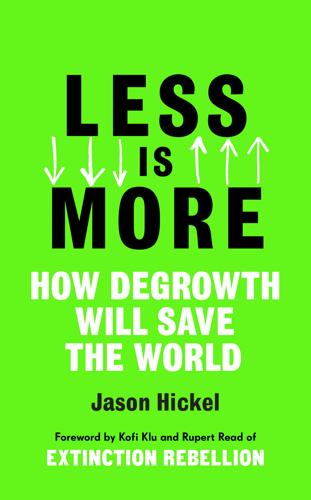
Less Is More: How Degrowth Will Save the World
by
Jason Hickel
Published 12 Aug 2020
Jason Hickel * * * LESS IS MORE How Degrowth Will Save the World Table of Contents PREFACEBy Kofi Mawuli Klu and Rupert Read of XR INTRODUCTIONWelcome to the Anthropocene Part OneMore is Less ONECapitalism – A Creation Story TWORise of the Juggernaut THREEWill Technology Save Us? Part TwoLess is More FOURSecrets of the Good Life FIVEPathways to a Post-Capitalist World SIXEverything is Connected Acknowledgements Endnotes About the Author Jason Hickel is an economic anthropologist, Fulbright Scholar and Fellow of the Royal Society of Arts. He is originally from Eswatini (Swaziland) and spent a number of years with migrant workers in South Africa, writing about exploitation and political resistance in the wake of apartheid.
…
ALSO BY JASON HICKEL The Divide: A Brief Guide to Global Inequality and its Solutions We don’t have a right to ask whether we are going to succeed or not. The only question we have a right to ask is what’s the right thing to do? What does this Earth require of us if we want to continue to live on it? –Wendell Berry Preface A Vision Informed by Our Shared Vulnerablity, and by Our Solidarity By Kofi Mawuli Klu and Rupert Read of XR. Extinction Rebellion [XR] is sometimes criticised for having demands that are (too) hard to achieve. But it’s important to be clear about what XR is not: XR is not an all-purpose way of fixing our adrift civilisation. Rather, XR is the smoke-alarm. XR is the non-violent cutting edge of what Jason Hickel calls in this important new book, the ‘emergency brake’.
…
The post-corona moment may be humanity’s last chance to learn from our shared vulnerability so as to create and realise a vision of a far more equal and far more sustainable world. Jason’s book interprets the world quite brilliantly. Join us now in changing it. Rebels for life, rebelling for life; Rupert Read and Kofi Mawuli Klu. England, April 2020. Introduction Welcome to the Anthropocene My heart is moved by all I cannot save. So much has been destroyed. I have cast my lot with those who, age after age, perversely, with no extraordinary power, reconstitute the world. Adrienne Rich Sometimes these realisations sneak up on you, like a quiet memory – just the slightest hint that something isn’t right.
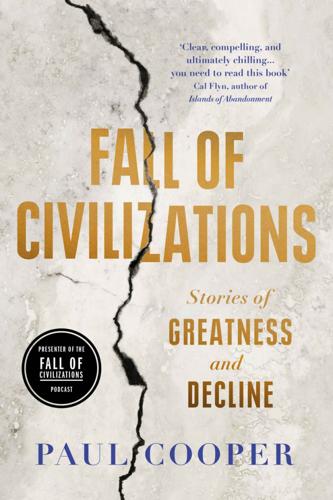
Fall of Civilizations: Stories of Greatness and Decline
by
Paul Cooper
Published 31 Mar 2024
Mundy, Irene Nicholson, Matthew Restall, Michael E. Smith, Tzvetan Todorov, Camilla Townsend, Brian Bauer, R. Alan Covey, John Curl, John Hemming, Kim MacQuarrie, Gordon F. McEwan, William H. Prescott, Irene Silverblatt, Stuart Stirling, Carl Lipo, Terry Hunt, Dan Bendrups, Robert Langdon, Katherine Routledge, John Francis Stimson, Rupert Read, Jem Bendell, David Skilton, Sven Lindqvist, Daniel Steel, Peter Wadhams, Joseph Tainter, Robert Macfarlane and Alan Weisman. Special thanks to the work of the Electronic Text Corpus of Sumerian Literature (ETCSL), run by Dr Jeremy Black, Dr Graham Cunningham, Dr Gábor Zólyomi and Dr Eleanor Robson.
…
‘On the Influence of Carbonic Acid in the Air upon the Temperature of the Ground.’ Philosophical Magazine and Journal of Science, ser. 5, vol. 41, April 1896, pp. 237–276. —————. Worlds in the Making: The Evolution of the Universe. United States, Harper & Brothers Publishers, 1908. Bendell, Jem and Rupert Read, editors. Deep Adaptation: Navigating the Realities of Climate Chaos. United Kingdom, Polity Press, 2021. Carrington, Damian. ‘“Insanity”: Petrostates Planning Huge Expansion of Fossil Fuels, Says UN Report.’ Guardian, 8 November 2023. —————. ‘New Zealand Rated Best Place to Survive Global Societal Collapse.’
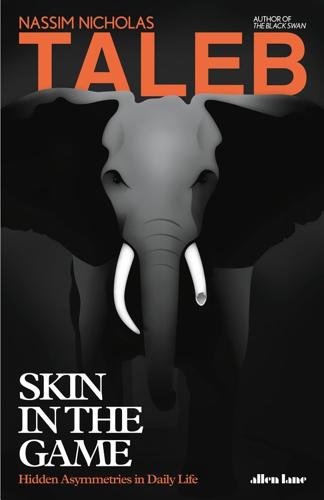
Skin in the Game: Hidden Asymmetries in Daily Life
by
Nassim Nicholas Taleb
Published 20 Feb 2018
Acknowledgments Ralph Nader; Ron Paul; Will Murphy (editor, advisor, proofreader, syntax expert and specialist); Ben Greenberg (editor); Casiana Ionita (editor); Molly Turpin; Mika Kasuga; Evan Camfield; Barbara Fillon; Will Goodlad; Peter Tanous; Xamer ‘Bou Assaleh; Mark Baker (aka Guru Anaerobic); Armand d’Angour; Alexis Kirschbaum; Max Brockman; Russell Weinberger; Theodosius Mohsen Abdallah; David Boxenhorn; Marc Milanini; ETH participants in Zurich; Kevin Horgan; Paul Wehage; Baruch Gottesman, Gil Friend, Mark Champlain, Aaron Elliott, Rod Ripamonti, and Zlatan Hadzic (all on religion and sacrifice); David Graeber (Goldman Sachs); Neil Chriss; Amir-Reza Amini (automatic cars); Ektrit Kris Manushi (religion); Jazi Zilber (particularly Rav Safra); Farid Anvari (U.K. scandal); Robert Shaw (shipping and risk sharing); Daniel Hogendoorn (Cambyses); Eugene Callahan; Jon Elster, David Chambliss Johnson, Gur Huberman, Raphael Douady, Robert Shaw, Barkley Rosser, James Franklin, Marc Abrahams, Andreas Lind, and Elias Korosis (all on paper); John Durant; Zvika Afik; Robert Frey; Rami Zreik; Joe Audi; Guy Riviere; Matt Dubuque; Cesáreo González; Mark Spitznagel; Brandon Yarkin; Eric Briys; Joe Norman; Pascal Venier; Yaneer Bar-Yam; Thibault Lécuyer; Pierre Zalloua; Maximilian Hirner; Aaron Eliott; Jaffer Ali; Thomas Messina; Alexandru Panicci; Dan Coman; Nicholas Teague; Magued Iskander; Thibault Lécuyer; James Marsh; Arnie Schwarzvogel; Hayden Rei; John Mast-Finn; Rupert Read; Russell Roberts; Viktoria Martin; Ban Kanj Elsabeh; Vince Pomal; Graeme Michael Price; Karen Brennan; Jack Tohme; Marie-Christine Riachi; Jordan Thibodeau; Pietro Bonavita. I apologize for the near-certain omission. THE BEGINNING Let the conversation begin … Follow the Penguin Twitter.com@penguinUKbooks Keep up-to-date with all our stories YouTube.com/penguinbooks Pin ‘Penguin Books’ to your Pinterest Like ‘Penguin Books’ on Facebook.com/penguinbooks Listen to Penguin at SoundCloud.com/penguin-books Find out more about the author and discover more stories like this at Penguin.co.uk ALLEN LANE UK | USA | Canada | Ireland | Australia India | New Zealand | South Africa Penguin Books is part of the Penguin Random House group of companies whose addresses can be found at global.penguinrandomhouse.com.
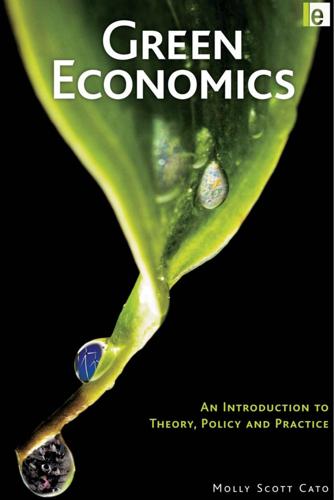
Green Economics: An Introduction to Theory, Policy and Practice
by
Molly Scott Cato
Published 16 Dec 2008
A few who spring immediately to mind are Len Arthur, Richard Bickle, Rebecca Boden, Richard Douthwaite, Debbie Epstein, Rob Hopkins, Pete North, James Robertson, Helen Royall, Diana Schumacher and Tony Weekes, and from the Green Party, Caroline Lucas, Fi Macmillan, John Marjoram, Philip Booth, Rupert Read and Martin Whiteside. Special thanks to my gifted and talented daughter, Rosa, who has loaned me her laptop at times when she heartily wished to be watching The Mighty Boosh. And finally thanks to the Stroudies, for welcoming me so warmly into their community and for putting a green economist to good use.
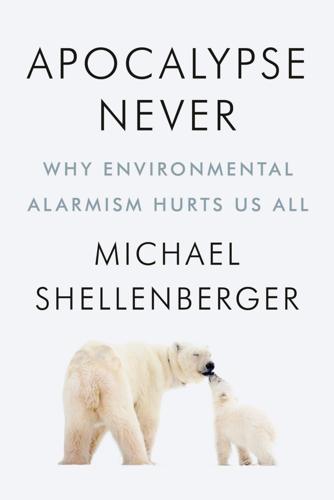
Apocalypse Never: Why Environmental Alarmism Hurts Us All
by
Michael Shellenberger
Published 28 Jun 2020
Susan Clayton et al., “Mental Health and Our Changing Climate: Impacts, Implications, and Guidance,” American Psychological Association and ecoAmerica, March 2017, https://www.apa.org/news/press/releases/2017/03/mental-health-climate.pdf. 102. Reuters, “One in five UK children report nightmares about climate change,” March 2, 2020. 103. Sonia Elks, “Suffering Eco-anxiety over Climate Change, Say Psychologists,” Reuters, September 19, 2019, https://www.reuters.com. 104. Rupert Read, “How I Talk with Children About Climate Breakdown,” YouTube (video), August 18, 2019, https://youtu.be/6Lt0jCDtYSY. 105. Zion Lights, interviewed by Andrew Neil, The Andrew Neil Show, BBC, aired October 10, 2019, on BBC, https://www.youtube.com/watch?time_continue=7&v=pO1TTcETyuU&feature=emb_logo. 106.
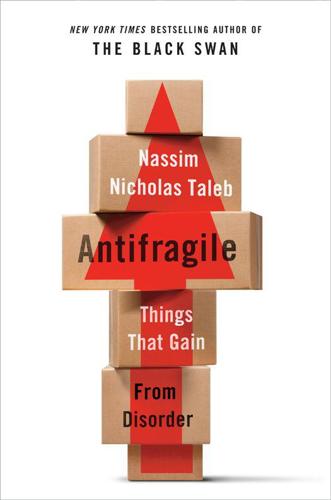
Antifragile: Things That Gain From Disorder
by
Nassim Nicholas Taleb
Published 27 Nov 2012
The Socrates of the Memorabilia is no-nonsense and down to earth; he despises sterile knowledge, and the experts who study matters without practical consequence when so many useful and important things are neglected (instead of looking at stars to understand causes, figure out how you can use them to navigate; use geometry to measure land, but no more). 2 Adam Smith was first and last a moral philosopher. Marx was a philosopher. Kahneman and Simon are psychologist and cognitive scientist, respectively. The exception is, of course, Hayek. 3 The philosopher Rupert Read convinced me that Hayek harbored in fact a strain of naive rationalism, as did Popper, and presents convincing arguments that the two should not be included in the category of antifragile thinkers. 4 The reader might wonder about the connection between education and disorder. Education is teleological and hates disorder.